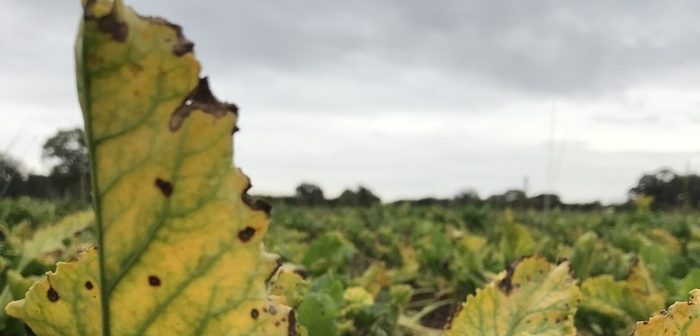NFU Sugar and British Sugar is asking Defra to meet urgently after the government announced it would not be granting the emergency authorisation for the use of Cruiser SB on sugar beet.
British Sugar had applied for emergency use of neonicotinoid seed treatment on sugar beet seed in the event of a high forecast of virus pressure in 2025. As in previous years, its use would only have been triggered if the independent Rothamsted Model surpassed a threshold of virus severity.
According to a Defra statement, there is evidence that Cruiser is extremely toxic to pollinators such as bees, even at doses that are not directly fatal leading to cognitive problems impacting foraging abilities and the productivity of hives.
Responding to the news, British Sugar’s Agriculture Director, Dan Green said:
“We are disappointed that Defra has rejected our joint application for limited and controlled emergency use of a neonicotinoid seed treatment to protect the UK sugar beet crop from Virus Yellows disease in 2025.
“Moving forward, we can assure our growers that Virus Yellows (VY) control remains the highest priority research area in the UK beet sector, through our long-standing work on the Virus Yellows Pathway. This includes working with plant breeders to improve natural resistance in the crop, on-farm techniques and grower practices, and research into gene editing. Several trials of Integrated Pest Management are showing promise and our project, in collaboration with agricultural biotechnology company Tropic, to explore how gene editing can be used in sugar beet to target Virus Yellows continues to progress well.
“As an industry, we have written to Defra seeking immediate support in the form of a Virus Yellows Resilience Package to mitigate any threat posed by a high Virus Yellows year for this crop and help us move at pace on some of the workstreams and trials in our VY pathway.
“This decision also leaves the UK in conflict with its own trade policy. There is continued tariff free access to the UK market for sugar which has been grown with neonicotinoid plant protection products, undermining our homegrown industry and British sugar beet growers. We will be raising this in our response to the current review into the Autonomous Tariff Quota (ATQ) and future free trade deals.”
Virus Yellows Resilience Package
The industry’s (British Beet Research Organisation, NFU Sugar and British Sugar) Virus Yellows Resilience Package is asking for support for some of the most promising trials within the Virus Yellows Pathway in order to expedite grower access to long-term solutions to the disease.
There have been promising developments across several areas, including gene editing, conventional breeding techniques and novel integrated pest management, but the industry now needs urgent support to go further, faster.




